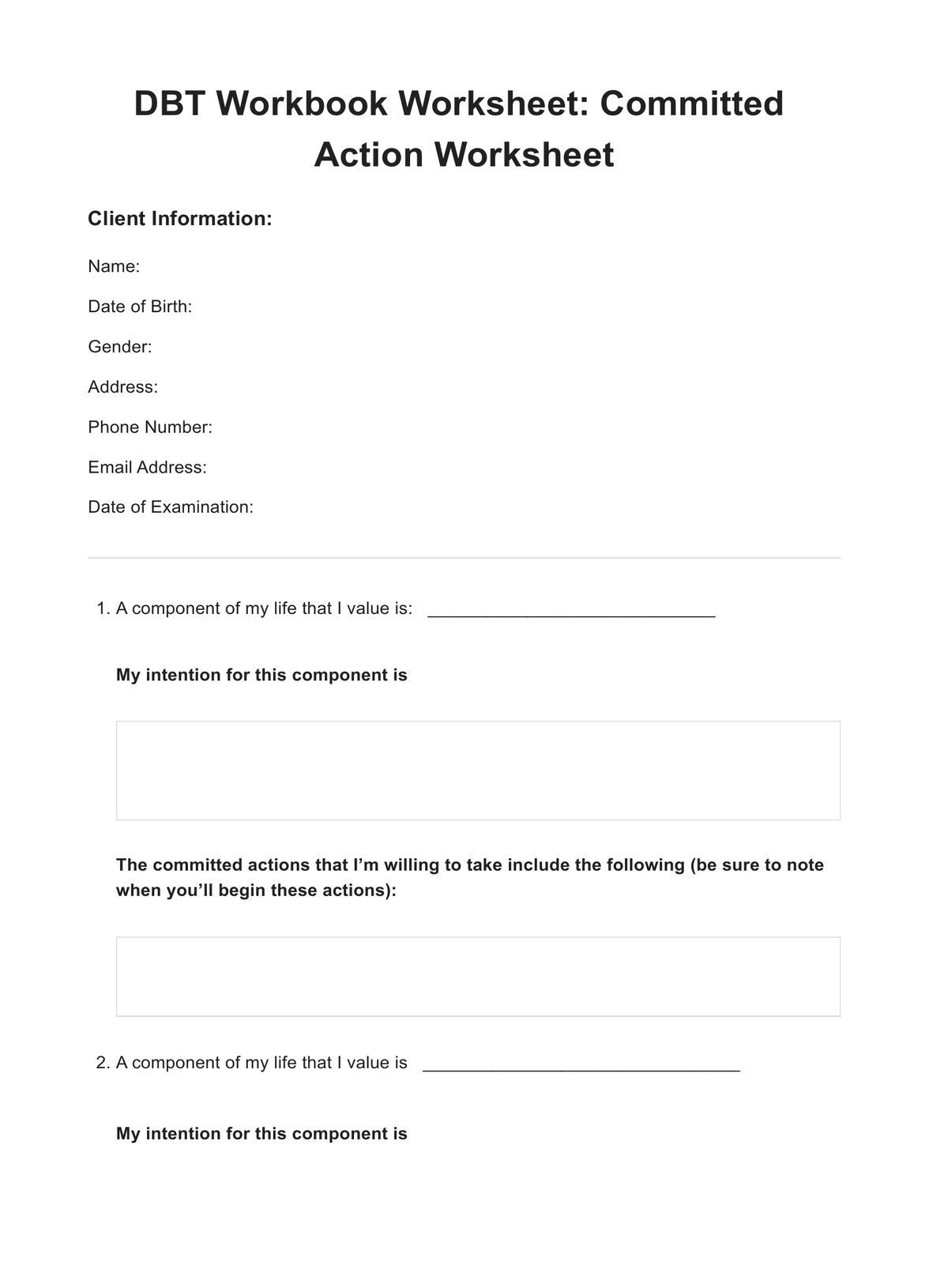DBT workbooks typically cover core areas such as mindfulness, distress tolerance, emotion regulation, and interpersonal effectiveness. They provide exercises and techniques to develop these skills and promote personal growth.

DBT Workbook
Discover robust emotional regulation and self-improvement tools with DBT Workbooks. Download this PDF now!
Use Template
DBT Workbook Template
Commonly asked questions
A DBT workbook is used by actively engaging in the exercises, journaling, and self-reflection. It is recommended to work through the workbook systematically, completing exercises and applying strategies in daily life.
Yes, a DBT workbook can be used independently as a self-help resource. However, seeking professional guidance and support is always beneficial, especially for complex or severe mental health issues.
EHR and practice management software
Get started for free
*No credit card required
Free
$0/usd
Unlimited clients
Telehealth
1GB of storage
Client portal text
Automated billing and online payments











